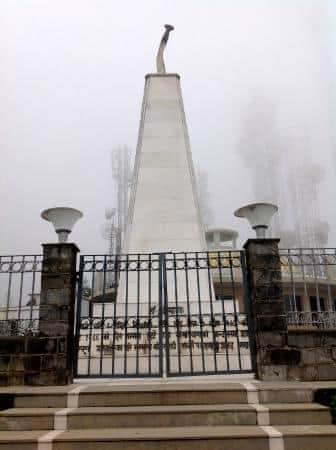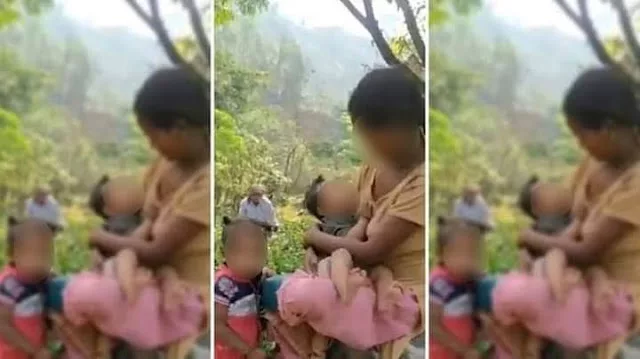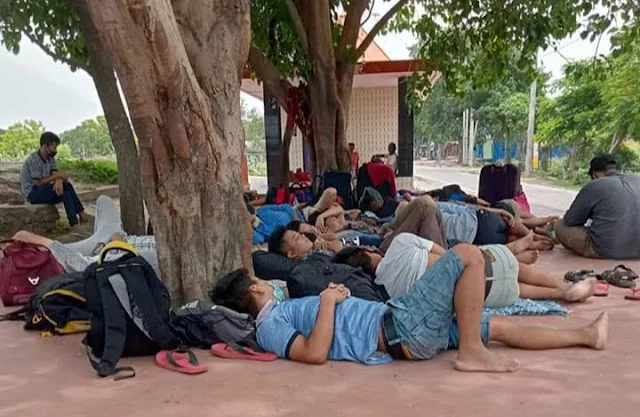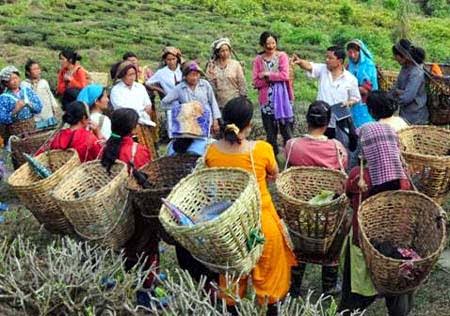Gorkha Students, JNU Condemn the rising atrocities on the Oppressed and Marginalized
The misery of the oppressed seems to be unending in the world’s largest democracy. Every minute we come across stories from the length and the breadth of our country about oppressed communities and their daily struggle for existence. This agony of the oppressed goes unheard, unattended and unaddressed. Democracy fails us and the ugly Brahmanical exploitative structure rears it’s hydra head everywhere. Recently, a young Dalit student, Jisha was raped and brutally murdered in Kerala. The perpetrators of this despicable and horrendous act are yet to be punished. The atrocity that went unto raping and killing the young woman is pure evil. How is it, that ‘a body’ becomes prone to more torture, pain, and abuse and why is it that ‘this body’ belongs to an adivasi, a dalit, a minority and a woman. Our political institutions and society are yet to address these issues. However, they are but symptoms of a larger malaise affecting us all. For Jisha and many others, her identity as a woman and a Dalit was enough for the perpetrators to carry out the abhorrent crime with impunity. Such acts have been historically ignored and neglected. Becoming all though more troubling when we see that the so called ‘progressive’ fonts pays only lip service to such gross injustices, thereby, confabulating this struggle for justice and equality
 |
| Rising atrocities on the Oppressed and Marginalized |
In yet another similar incident, in Margherita, Assam, a young Gorkha girl of just 20 years was found to be raped and brutally murdered and thrown in a river (inset pic.1). He deformed body later showed the degree of brutality meted out to her. When some public spirited citizens and organizations came forward and protested against such atrocity, the Tinsukia police rather than finding the culprits were quick to condemn such protests as fomenting anarchy. The police and the administration in no uncertain terms have tried to belittle the issue and with no media coverage of this heinous act, we fear that this incident too would be in the long lists of cases, where justice goes dying with the dead.
Sadly, this is not new. We encountered similar apathy of our government and our political leaders two years back when a student from Sikkim was sexually molested by her seniors and blackmailed into silence at the prestigious Visva-Bharati Central University in Bengal. Social media uproar forced a few political leaders to speak on this, who vouched to fight for her and to put the accused behind the bars. Sadly, when the furore died down so did their promises. Till now, the girl still has to undergo medical treatment for her traumas while the culprits still roam free inside the campus, allegedly, because of help and protection from the officials of the University itself. Her father however remains determined and continues to run from pillar to post hoping that one day he will be heard and his daughter will get the justice she deserves.
Our question remains, as to why that people from certain background are more easily prone to crime and criminals. Why is it easy for the perpetrators to carry out such horrendous acts without the fear of law or justice on the them. Only too recently a girl from Manipur was abducted right from the middle of a street in a foiled attempt in the city of Bengaluru. Thankfully, the girl was able to free herself not because people chased away the perpetrator or caught him but because of the sheer grit and courage of the girl alone, while we see in the cctv captured video of the act that people stroll by in the vicinity as if nothing has happened. This is indeed shameful and reprehensible.
Also, in continuation of the series of racial attacks. Closer to campus, on May 2nd John Thapa and his friend John Rana hailing from Gorkhaland, were brutally beaten (inset pic. 2) up by the locals of Chakkarpur in Gurugram for raising objection against throwing dirty water on them by the locals. Both of them were brutally beaten by rods and sticks by locals for daring to raise their voice. What is more disturbing is that last year similar kind of racial attack had occurred on 18/05/2015 when Abishek Rai and his two friends all hailing from Teesta Valley, Gorkhaland, were brutally beaten up by their landlord’s son and his friends in Gurugram. Everywhere there seems to be one common thing. The identity of the oppressed becomes an incentive for the oppressor to victimize them. These incidents clearly show that racism for people with certain ethnicity in India is daily living experience. It’s not alone limited to people from Northeast. Even non-north eastern people like the Gorkhas, the Ladakhis, and the Tibetans face it.
Also, it is alarming when we see that such casteist, racial, communal and linguistic discrimination seems to have permeated from our society and unto our political institutions as well. Allowing for a fascist and repressive system to thrive and which represses anything which comes as progressive or just. Such repression got showcased again when two people were killed over police firing in the Tawang District of Aruncahal Pradesh (inset pic 3). The victims were demanding the release of Gyatso, the Secretary of the Save Mon Region Federation (SMRF), who were questioning the building of the dams in an earthquake prone area and were demanding more local consensuses to be built on the issue. We have already seen such roughshodding when huge dams were built on the river Teesta in Sikkim and West Bengal repudiating the concerns raised by the locals about the adverse impact these dams might have on their life, livelihood and the environment. Sadly, we as a society seemed to have normalised this repression and given into the ideology advocated by this repressive regime that makes anyone standing against them typecast as criminals or anti-national. Such typecasting takes away from them their political rights and allows for the full force of the repressive machinery to be turned on them while the citizenry is lulled into looking the other way by the mantra of “greater good”. Such plundering of the tribal forest lands and flooding of huge hill areas are all carried out in the name of the greater good. However, the question remains whose greater good? Is it the good of the regimes over the blood of the oppressed nationalities or is it the blindness of the collective conscience which fails to see the dark side of this greater good? Violence against the oppressed communities has always been structured and programmed well by the authors of oppression, ever and always. History will never forget and forgive the killing of about 1500 people under the state repression during the 1986 Gorkhaland agitation or the atrocities that were meted out to people under the Armed Forces Special Power Act in the North East since 1958. Such state repression is sophisticatedly designed to combat and repress voices of dissent in any form.
In the recent times too we see how such forms of repression has permeated and penetrated even into our educational institutions like HCU, JNU, FTII or JU wherein all and any voices of dissent are criminalized. We have seen how the progressive environment of our own university too is being poisoned by the same repressive state apparatuses manifest in the recent dictatorial High level Enquiry Committee (HLEC) report and the farcical dossier which tries to isolate and profile certain sections of the student community and teachers as immoral and anti-national based on their caste, religion and racial ethnicity.
Such typecasting is what allows for certain sections of our society to be devoid of law and to their claim to its equality, justness or fairness. People with no claim to law are hence then found to be easy target of the repressive regime and the casteist and racial society that we have come to exist in. It is what has allowed the perpetrators of the heinous crime against Jisha to the reach the level of horrendousness yet unheard. It is what is making the Tinsukia administration and police to brush the horrible rape and murder of the bright young Gorkha girl under the carpet of nonchalance. It is the lulling and normalising of such depraved acts that has allowed the molesters in Shantiniketan to roam free, or the violent acts in Gurugram to be reported unheard. It is this ideology of supposed ‘growth’ which excels in repressing and killing its own people.
Gorkha Students, JNU condemns all such heinous acts and travesties of justice. We condemn, in the strongest terms the despicable crimes committed against Jisha, against the girl from Assam who was brutally raped and murdered and to the apathy shown by the University officials towards the girl from Sikkim. We demand a proper investigation in all these cases with speedy trial for the perpetrators to be booked and be brought to justice. Only the unity among an oppressed can break the chain of patriarchy, racism and castiesm!
Gorkha Students, JNU





